Are you on the hunt for a new RV? Or looking to upgrade your old camper? Either way, you'll have to consider its flooring. This is key to making your RV look and feel cushy - you'll be surprised at how much of a difference your choice of flooring makes! With this in mind, you may wonder what types of flooring your RV should have. We've done the research to come up with the best choices for you.
The best flooring options for an RV include:
- Vinyl
- Carpet
- Linoleum
- Laminate
- Cork
Keep reading as we dive into the pros and cons of each flooring type to help you determine which one would best suit your RV lifestyle! We'll also give the answers to some of your other important related questions.
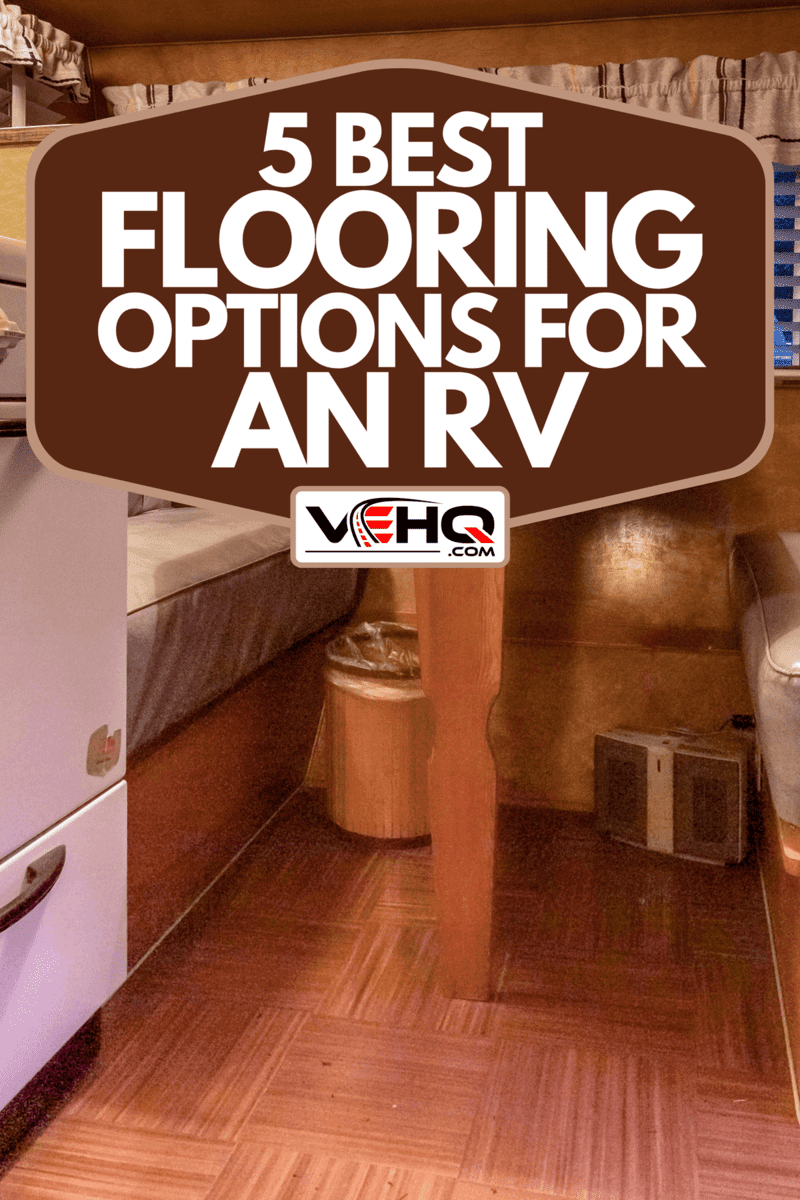
Top 5 Flooring Types for RVs
Because you never know what you'll encounter on the road, it's best to have high-quality flooring for your RV. It should be durable and water-resistant to ensure it lasts through years of use, dirt, harsh weather, and unexpected events.
In addition, your RV flooring also has to be easy to install and maintain, so it adapts to your life on the road. It should also be lightweight, so it won't add to the heaviness of your RV.
Since you'll be spending a lot of time in your RV, it doesn't hurt to have flooring that's pleasing to the eye. Finally, it should be cost-efficient with the right price for the right value.
So what flooring types fit these criteria? Take a look at the best flooring options for your RV:
1. Vinyl
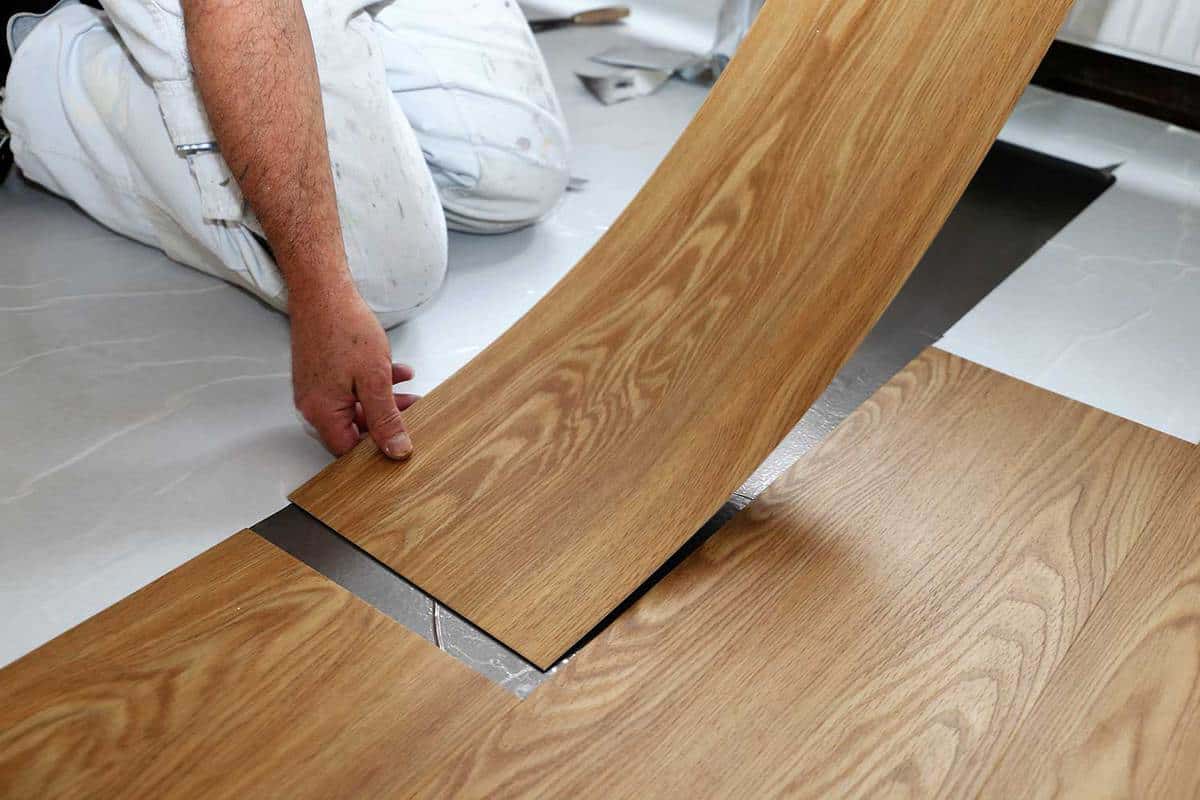
Vinyl is one of the most popular flooring options for RVs for good reason. First of all, it's waterproof: any spills or dirt can be easily cleaned up. This means it's suitable for heavy foot traffic and exposure to moisture from different weather conditions and terrains. It also means your flooring won't retain nasty stains or odors.
If you love changing up the look of your RV or looking for flooring that adapts to your style, vinyl is an ideal choice for you. It comes in a wide variety of colors and patterns that give your RV a unique vibe. Installing vinyl flooring is a cheap and easy way to upgrade the look of your RV.
However, there are disadvantages to vinyl flooring. It's not adept at absorbing noises, so your RV can get quite loud. Because the material isn't that thick, it can also get cold and reveal the flaws of the sub-flooring. Moreover, it can warp over time and with the movement of your RV.
2. Carpet
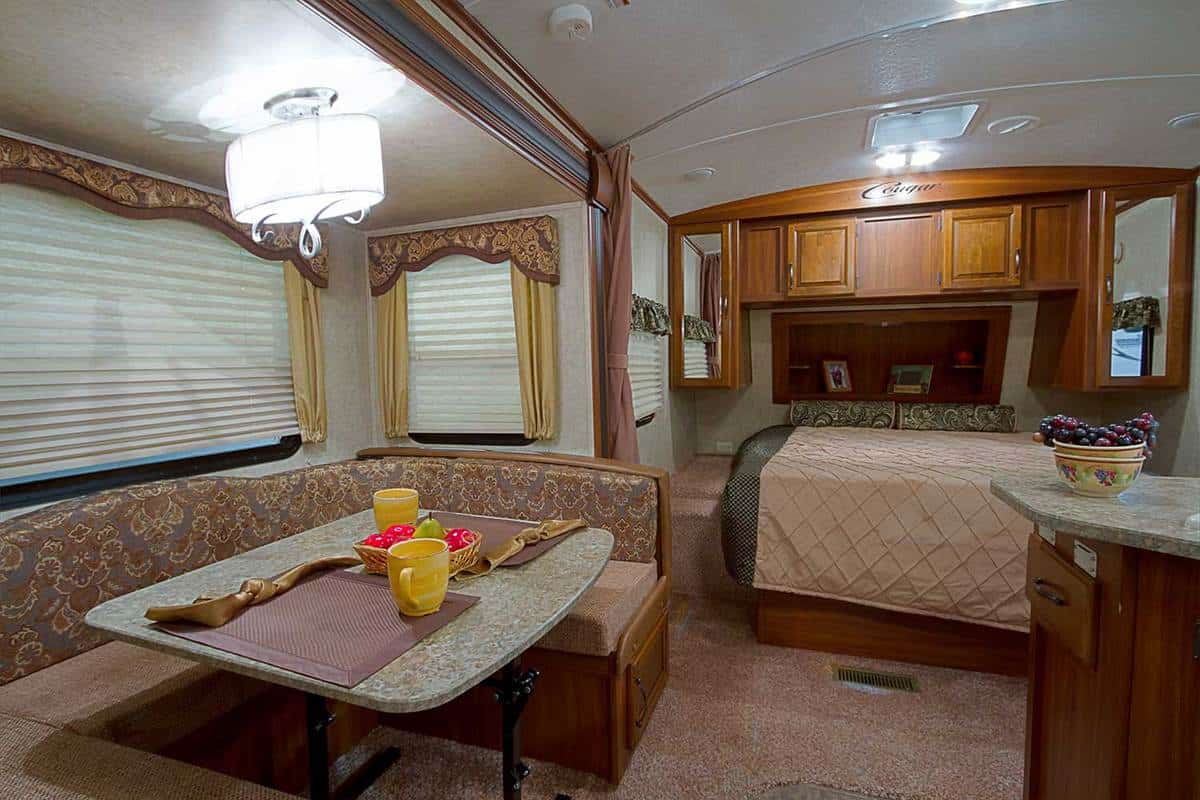
Warm and fluffy carpet flooring transforms your RV into a cozy, appealing space that feels like a home away from home. Its main feature is its ability to insulate the floor and offer lasting warmth even in cold weather. It also absorbs sounds and creates a homey vibe, giving you a peaceful environment no matter where you go.
Carpet flooring comes in a wide variety of colors and designs which makes it flexible to your style. Whether you want sleek and stylish or bright and vibrant, you can find carpet flooring that suits your preferences. It's also fairly inexpensive and easy to install.
The biggest problem with carpet flooring, though, is that it's difficult to maintain. Dust, dirt, hair, fur, and other debris that you bring in from the outdoors can get into your carpet. It will require regular intensive cleaning to keep stains and odors out. Because it wears out easily with age, it will also require replacement every five years or so.
3. Linoleum
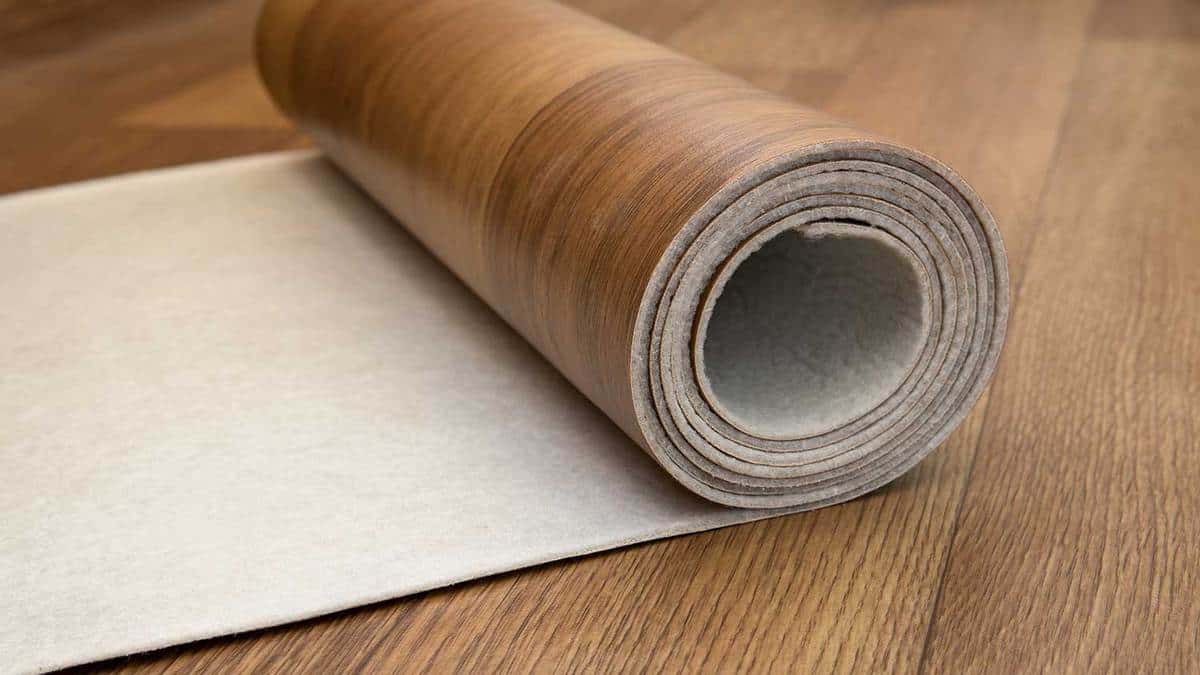
Made with biodegradable materials, linoleum outlasts wear and tear even with years of heavy use. It's also water-resistant and scratch-resistant, meaning you don't have to put too much time and effort into its maintenance. All you need is to give it an occasional cleaning!
Linoleum flooring also comes in different colors and styles, so you have the freedom to choose a particular look to go with the aesthetic of your RV. It's a great replacement for worn-out flooring to spruce up your RV.
Like all other flooring types, linoleum flooring does have a downside. Not all linoleum flooring is suitable for RVs. Tile linoleum is difficult to install and does not hold up well to water exposure or wear and tear. If you're going for this type of flooring, make sure to choose thick, high-quality sheet linoleum.
4. Laminate
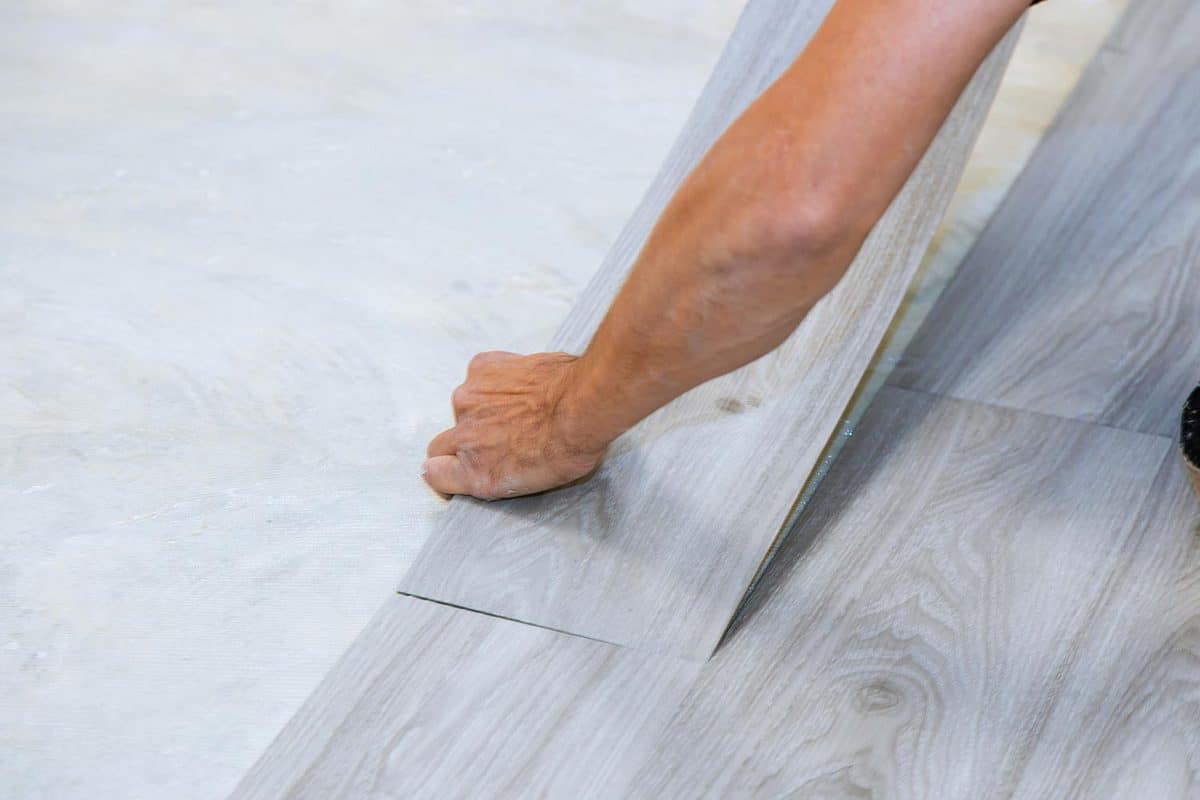
Often compared to vinyl, laminate flooring is a durable and water-resistant flooring option. It has more padding than vinyl, which means it can absorb sounds and keep warmth better.
A great alternative to wood flooring, laminate flooring mimics the look of hardwood without the extra weight and difficult maintenance. This gives your RV a touch of sophistication. In addition, laminate flooring is easy to install, easy to clean, and affordable.
However, laminate flooring can be more susceptible to temperature changes. It also doesn't respond to increased exposure to water and moisture as well as vinyl does, so it can warp more easily. The surface can also get slippery, which can be a hazard to senior adults and pets.
5. Cork
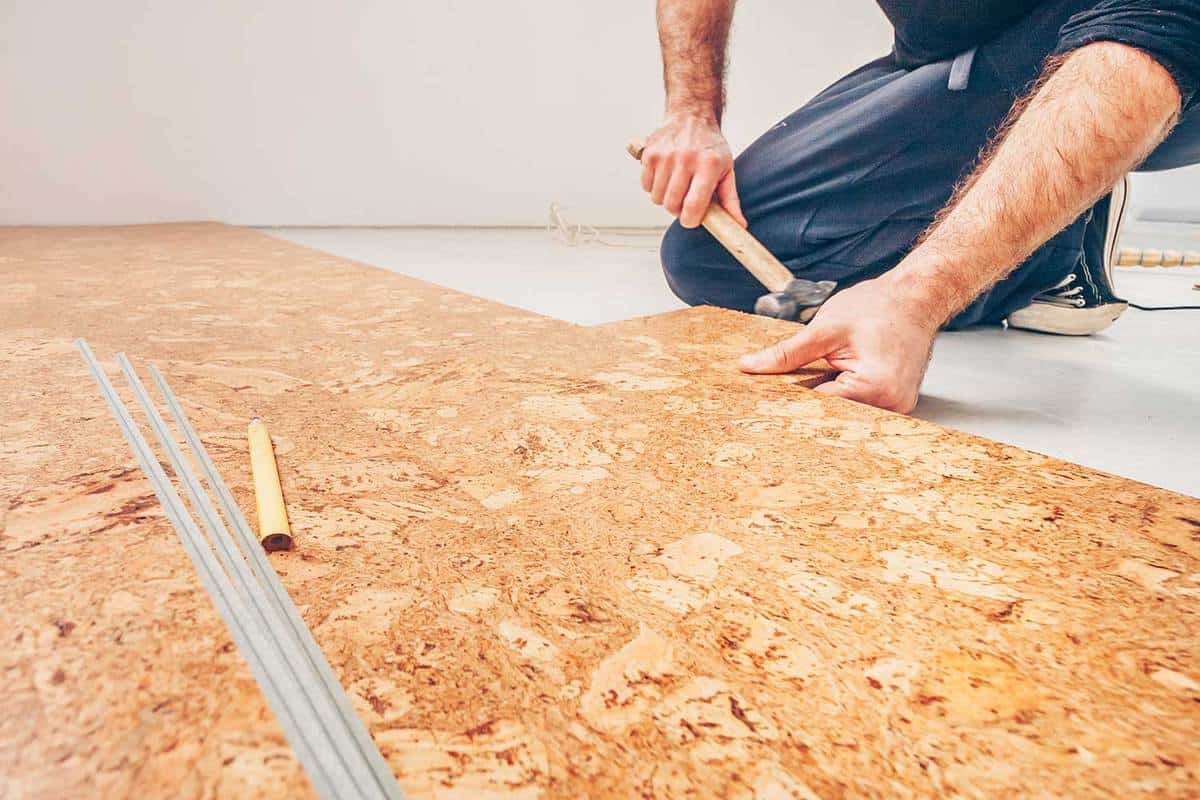
Did you know that you can install cork flooring on your RV? Thick yet lightweight, cork offers a lot of advantages for your RV lifestyle. Not only is it durable, but it's also resistant to dirt, water, fire, and mold growth. Plus, it's made of sustainable materials that make it sturdy and eco-friendly.
Like carpet flooring, it absorbs sounds well and keeps the floor insulated. It's also easy on the feet due to its cushy surface. It also has a unique appearance and texture that can make your RV stand out.
The drawback of cork flooring is that it doesn't do well with moisture, so it may not be that ideal for use in the kitchen or the bathroom. In addition, it shows scratches easily, which can be a challenge if you have pets or kids aboard your RV.
For more ideas on flooring for your RV, check out this helpful article: "9 Great RV Flooring Ideas To Consider."
What are RV subfloors made of?
Now you may be wondering what material the subfloor you're installing your flooring on is made of. RV subfloors are typically made of plywood or particleboard. The latter is made by pressing wood chips and resin together.
With years of use, your RV subfloor may be susceptible to water damage and other types of damage. You'll need to have your subfloor repaired by a professional or do it yourself.
What are Jayco floors made of?
Jayco RVs are popular among RV enthusiasts for their reliable and high-quality campers. A typical Jayco RV has flooring made out of a wooden frame that is topped with tongue and groove plywood.
How thick are the floors in an RV?
The thickness of subfloors in RVs varies from model to model. The average thickness is about 1/2-inch or 3/4-inch thick.
What causes soft spots in RV floors?
Water damage is the main culprit for soft spots on RV floors. Water from rain, spills, leaks, showers, and sinks can soften and damage the wood, eventually causing it to rot. Other contributors that lead to soft spots are old age and cleaning chemicals.
Luckily, you can fix soft spots in your RV floors to get ahead of them before they inflict further damage on your camper. Repairing and replacing your RV floor can be a bit taxing and will require tools, so make sure to be prepared for the job.
Need more information on replacing your RV floor? Take a look at this post: "How Much Does It Cost To Replace Your RV Floor?"
In Closing
Choosing the right type of flooring in your RV can increase your comfort level and help you avoid problems when you're on the move. Make sure to weigh the pros and cons of each floor type so you can pick the option that best suits your needs and tastes. Remember to go for flooring that's stylish, durable, and weather-resistant - so it adapts easily to your RV lifestyle.
